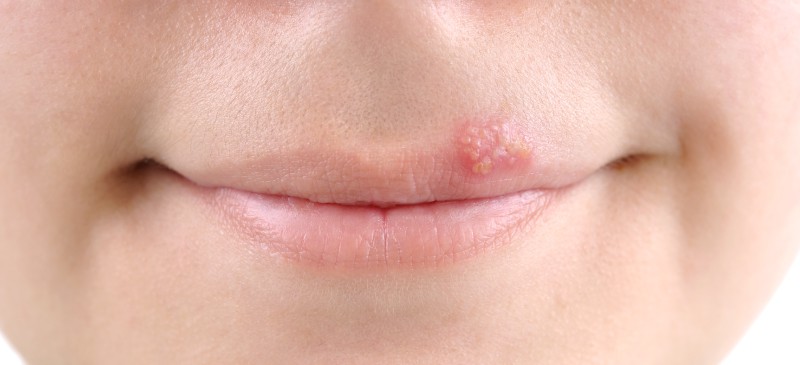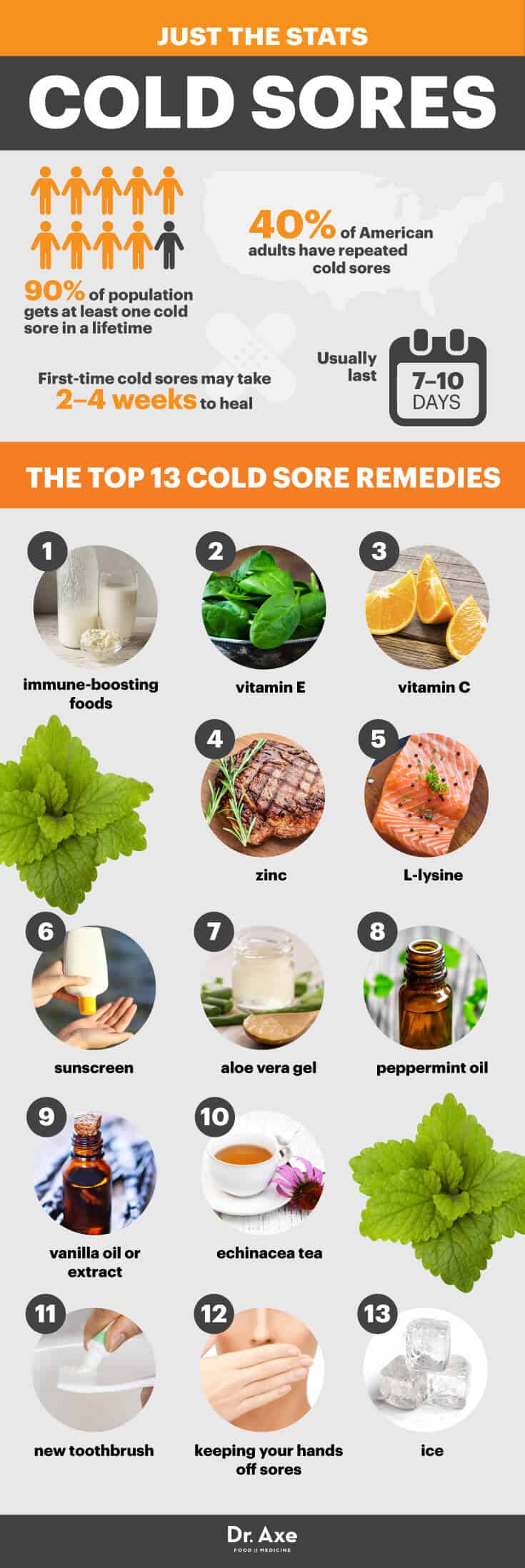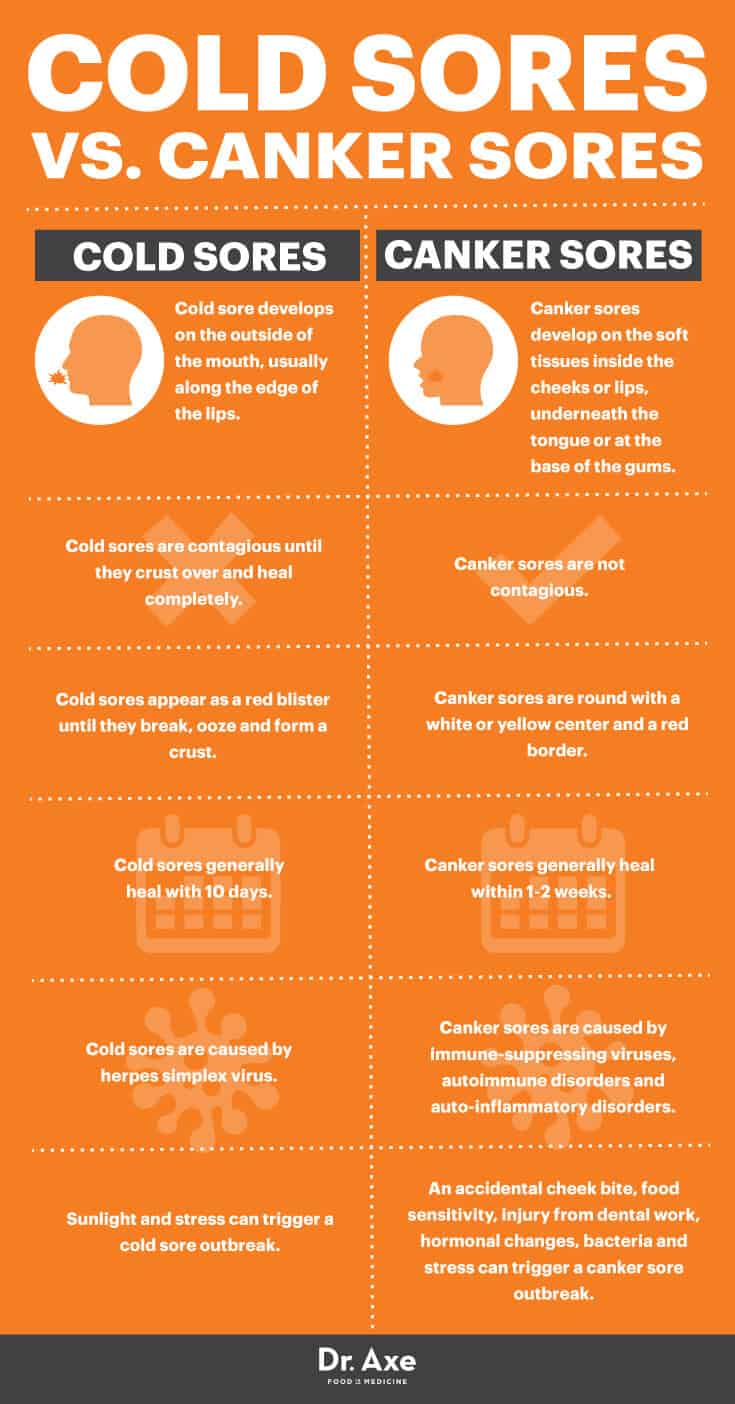This Dr. Axe content is medically reviewed or fact checked to ensure factually accurate information.
With strict editorial sourcing guidelines, we only link to academic research institutions, reputable media sites and, when research is available, medically peer-reviewed studies. Note that the numbers in parentheses (1, 2, etc.) are clickable links to these studies.
The information in our articles is NOT intended to replace a one-on-one relationship with a qualified health care professional and is not intended as medical advice.
This article is based on scientific evidence, written by experts and fact checked by our trained editorial staff. Note that the numbers in parentheses (1, 2, etc.) are clickable links to medically peer-reviewed studies.
Our team includes licensed nutritionists and dietitians, certified health education specialists, as well as certified strength and conditioning specialists, personal trainers and corrective exercise specialists. Our team aims to be not only thorough with its research, but also objective and unbiased.
The information in our articles is NOT intended to replace a one-on-one relationship with a qualified health care professional and is not intended as medical advice.
How to Get Rid of Cold Sores Naturally
November 15, 2018

Did you know that 90 percent of the population gets at least one cold sore in a lifetime, and 40 percent of American adults repeatedly get cold sores? They can be painful, uncomfortable and downright unattractive, beginning as a blister and eventually forming a crust. Cold sores are commonly mistaken for canker sores, especially in children. Canker sores, however, involve only the mucous membrane, and they’re never on the outside of the mouth.
Cold sores are caused by the herpes simplex virus (HSV), an infection that may cause only a single cold sore or an outbreak of several cold sores. Until a cold sore is scabbed or crusted, it’s extremely contagious and can even be spread to other parts of the body, including the eyes and genitals — though most cold sores are nongenital.
The most common conventional treatments for cold sores are antiviral creams and oral medications, which can reduce the duration of cold sores by a few days but aren’t completely reliable. There are natural cold sore remedies, however, that are safe, inexpensive and effective in boosting the immune system, relieving pain and swelling, and reducing the duration and frequency of cold sores.
What Are Cold Sores?
Cold sores, or fever blisters, are painful infections caused by the herpes simplex virus. They can show up anywhere on the body but are most commonly seen on the outside of the mouth, lips, cheeks, nose and fingers.
A cold sore looks like a blister, and it usually lasts for seven to 10 days, at which time it’s contagious. Over time, it breaks and oozes, then develop a yellow scab, with new skin growing underneath.
Although a cold sore infection is generally not serious, it can be a major issue for people with depressed immune systems due to disorders or medications. Even after a cold sore crusts over and heals, the herpes virus remains, and it can cause future outbreaks in the same area of the mouth or face. (1)
When cold sores spread, it’s called autoinoculation, and these simplex infections can cause a lesion to appear when it spreads.
Here are the different ways to describe herpes simplex cold sores, according to TeensHealth from Nemours: (1a)
- Herpes labialis
- Simplex infections
- Herpetic stomatitis
- HSV type 1
- Cold sores HSV
13 Natural Cold Sore Remedies
1. Eat Immune-Boosting Foods
Cold sores can be very serious for people with weakened immune systems, so eating foods that serve as immune system boosters can be very helpful.
Probiotic foods like yogurt, apple cider vinegar, kimchi, sauerkraut and natto boost the immune system naturally. (2) Vegetables are also great sources of vitamins, minerals and nutrients that can help you to fight off infections. Try this Immune-Boosting Juice Recipe to keep cold sores at bay.
2. Supplement with Vitamin E
Vitamin E soothes the skin and may help to relieve pain and discomfort from cold sores. It repairs damaged skin, reduces inflammation and has antioxidant properties. (3)
Vitamin E can be taken as oral capsules, or you can boost your levels with vitamin E-rich foods, such as almonds, spinach, sweet potatoes, avocados, sunflower seeds and olive oil.
3. Supplement with Vitamin C
Boost your white blood cell count with vitamin C, which helps defend your body against invaders. Take a vitamin C capsule to boost immunity and promote skin health — and, of course, heal cold sores. (4)
You can also eat vitamin C foods like oranges, red peppers, green peppers, kale, Brussels sprouts, broccoli, strawberries, grapefruit and kiwi.
4. Boost Your Zinc Intake
Zinc is an essential trace mineral needed to maintain health, reduce inflammation and boost immunity. It’s usually available in various forms, including lozenges, syrups, gels and capsules. These supplements can contain zinc in the form of zinc gluconate, zinc sulfate or zinc acetate.
A study published in Alternative Therapies for Health and Medicine found that zinc oxide/glycine cream is an effective treatment for an oral herpes infection. Participants who began treatment with a zinc oxide/glycine cream within 24 hours of experiencing signs and symptoms of a cold sore noticed a significantly shorter duration of cold sore lesions than the subjects treated with a placebo cream. (5)
You can also take advantage of these zinc benefits and avoid zinc deficiency — which can increase the risk of cold sores — with certain foods, including grass-fed beef, chickpeas, cashews, pumpkin seeds yogurt, chicken, turkey, eggs, salmon and mushrooms.
5. Take L-lysine
L-lysine is an amino acid that works as a natural herpes treatment when taken by mouth or applied directly to the skin. It works by preventing the herpes virus from growing. Take 1,000 milligrams three times daily, and eat foods that contain L-lysine, such as legumes, fish, turkey, chicken and vegetables.
Several double-blind and placebo-controlled studies have found that L-lysine appears to be an effective agent for the reduction of occurrence, severity and healing time for recurrent herpes simplex virus infection. (6, 7)
6. Use Sunscreen
Direct sunlight or sunburns may trigger an attack, so using sunscreen or avoiding heavy sun exposure may reduce the number of cold sore recurrences that you experience. (8) Make sure to apply the sunscreen on the lips throughout the day, which can be done easily with a SPF lip balm. I suggest using lemon balm if you can.
Also, be careful when selecting sunscreen, opting for 100 percent natural and organic sunscreen. That can be difficult, as the majority of sunscreens are toxic, so make sure you avoid the common brands that actually cause more harm than good.

7. Apply Aloe Vera Gel
Aloe vera gel is used to treat skin conditions like cold sores. It contains antioxidant vitamins, enzymes, minerals, fatty acids and hormones that help with healing and preventing further infection. (9) Use aloe vera gel on a cold sore throughout the day to ease the discomfort and speed the healing process.
8. Use Peppermint Essential Oil
The antiviral constituents in peppermint oil make it a great tool for healing cold sores. A 2013 study published in Phytomedicine tested peppermint oil’s inhibitory activity against HSV-1 and HSV-2. Researchers found that peppermint oil exhibited high levels of virucidal activity against both HSV-1 and HSV-2.
After three hours of incubation of herpes simplex virus with peppermint oil, an antiviral activity of about 99 percent was demonstrated. The oil proved to be more effective in the early stages of symptoms. (10)
9. Apply Vanilla Oil or Extract
Apply vanilla oil or vanilla extract to the area of concern as soon as you feel a tingling sensation. Soak a cotton ball with vanilla extract and hold it in place for one to two minutes; do this four times daily until the cold sore heals. The anti-inflammatory activity helps heal the cold sore and reduce pain. Vanilla oil also helps fight the infection and speed up the healing process. (11)
Look for vanilla Co2 total extract, which is the highest quality. It can be pricey, so using the extract you use for cooking or making a vanilla oil infusion by soaking vanilla beans in a carrier oil or jar of alcohol works too.
10. Drink Echinacea Tea
Echinacea can be especially useful for people with a weakened immune system. It’s most commonly used for people trying to get rid of a cold, but it’s a powerful immune system stimulator that can provide a signifiant therapeutic value, even when trying to fight a virus — like herpes simplex. (12) Drinking echinacea tea is an easy way to boost your immune system, reduce inflammation and alleviate pain too.
11. Get a New Toothbrush
Your toothbrush may carry the herpes simplex virus that caused the cold sore in the first place, so it’s best to chuck it and get a new one. If you have a habit of touching the toothpaste tube when applying toothpaste to your toothbrush, it’s a good idea to throw that out too.
12. Keep Your Hands Off
A cold sore is highly contagious until it crusts over and heals, so keep your hands off to avoid spreading the infection. If you use a face towel or cold compress, put it directly in the dirty laundry pile afterward.
13. Ice It
Apply ice or a cold compress to the cold sore to reduce inflammation and slow down blood flow to the sore. This helps relieve pain and swelling.
Bonus Remedies:
14. Utilize Tea Tree Oil
Small studies have seen modest improvements when using a tea tree oil ointment. You can try tea tree oil in gel form as soon as you feel the tingle of a cold sore to see if it helps you personally — the earlier you apply it, the more significant the results are likely to be. (13)
13. Use Hydrogen Peroxide
By drying out and cleaning the affected area, hydrogen peroxide may be a useful cold sore remedy. It is thought that peroxide acts with antiseptic quality and may be able to kill off the HSV virus, which is particularly sensitive to the effects of peroxide. (14)
12. Apply Lemon Balm
This natural remedy has been found to significantly kill off the herpes virus responsible for cold sores. When dabbing on lemon balm extract in cream form, research shows that the intervals between herpes breakouts become longer, the healing period shortens and the symptoms, such as itching and burning, seem to decrease. (15)
Interestingly, because of the way that lemon balm works to achieve this, there is no risk of a resistance to the herpes virus forming after repeated uses. (16) The same results seem to exist when using lemon balm essential oil as an ointment. (17)
Cold Sores vs. Canker Sores
Cold sores are often confused with canker sores, but the two are very different, looks aside. Here is how to distinguish between a cold sore and a canker sore:
Cold Sores
- Develop on the outside of the mouth, usually along the edge of the lips
- Are contagious until they crust over and heal completely
- Appear as red blisters until they break, ooze and form a crust
- Generally heal with 10 days
- Caused by herpes simplex virus
- Can be triggered by sunlight and stress
Canker Sores
- Develop on the soft tissues inside the cheeks or lips, underneath the tongue or at the base of the gums
- Aren’t contagious
- Are round with a white or yellow center and a red border
- Generally heal within one to two weeks
- Caused by immune-suppressing viruses, autoimmune disorders and auto-inflammatory disorders
- Can be triggered by an accidental cheek bite, food sensitivity, injury from dental work, hormonal changes, bacteria and stress

Cold Sore Symptoms
There are usually several stages of a cold sore, including:
1. Itching and Burning
A day or two before a blister appears, you may experience a tingling, itching and even burning sensation around the lips. This is the first sign that a cold sore is developing, typically beginning with that tingle.
2. Blisters
Within 24–48 hours, a blister, which is a small fluid-filled bump, appears on the border of the lips and skin.
3. Oozing and Scabbing
Eventually, the blister or blisters will break open and begin to ooze fluid, and this can be quite painful. It will then dry out and crust over, creating a scab that protects the new skin growing underneath.
Each cold sore experience is different, and first-time cold sores can be more painful than recurring cold sores. Plus, first-time cold sores may take more time to heal, sometimes taking up to two to four weeks before they heal completely. During an outbreak, you may experience a headache, painful gums, sore throat, muscle aches, fever, nausea, vomiting and swollen lymph nodes.
If a cold sore persists longer than a week, and there are no signs of breakage or crusting, it’s wise to call your health care provider. You may also want to notify your dentist or physician if a sore makes it hard for you to talk or swallow, if you develop a fever, or if you experience a second outbreak of blisters.
What Causes Cold Sores?
What are the infections cold sores stem from? A cold sore develops as a result of the herpes simplex virus, which is an infection that may cause only a single cold sore or an outbreak of several cold sores. Fever blisters are typically caused by herpes simplex virus type 1, and they can be spread by kissing and sharing face towels, cups, spoons or forks when the sore is present.
Herpes simplex virus type 2, on the other hand, usually causes sores in the genital area and is spread by sexual contact or when a mother with genital herpes is delivering her baby vaginally. Type 2 herpes can sometimes cause mouth sores, although sores around the vagina and penis are more common.
A person with a cold sore (from herpes simplex virus type 1) can spread the infection and give a person genital lesions during oral sex. It’s not limited to just the mouth and lip area. HSV can also spread and infect other areas of the body, such as the eyes or the brain, but this is rare. (18)
Once a person to exposed to HSV-1, the cold sore typically appears in about a week, and the virus can be reactivated later in life, causing more cold sore outbreaks. HSV-1 can be activated after a period of stress or illness, as a result of poor nutrition, when dealing with an upper respiratory infection, when menstruating, or even after sunlight exposure. Dental procedures that stretch the lip may also trigger the virus to reappear. (19)
To prevent the spread of herpes simplex, do not kiss anyone who has a cold core. Using sunscreen on the lips may also prevent cold sores that are caused by sun exposure.
If you already have a cold sore, prevent the spread of infection by keeping the area clean and leaving it alone. Try not to touch the sore or pick at the crust. It’s also important that you avoid kissing anyone while you have a blister, and don’t share utensils, glasses or towels that make contact with your mouth.
Conventional Cold Sore Treatment
The most commonly prescribed medications for relieving pain and discomfort from a cold sore are acyclovir (Zovirax), famciclovir (Famvir) and valacyclovir (Valtrex). These antiviral drugs don’t cure the virus, and they don’t help once the blister appears. They have to be applied when you can feel a cold sore coming on in order to be effective. (15)
Several studies have investigated the efficacy of oral antiviral medication in the treatment of cold sores. The medication must be taken when symptoms first appear in order to be effective. Study results vary, but most suggest that antiviral medications reduce the duration of symptoms by one or two days, especially when taken at higher doses.
When acyclovir was tested on 149 patients who took 200 milligrams five times daily for five days, it had no effect on the duration of pain or the time to recovery. However, in another study, 174 patients reported a reduction in the duration of the symptoms after taking 400 milligrams five times daily for five days. (16, 17)
The most frequent reported side effects of oral antiviral medications are headache and nausea, which depend on the dose and duration of treatment.
Anesthetic and antiviral creams are also used to treat cold sores, such as Abreva. In a small, randomized and controlled study, seven patients tested lidocaine and prilocaine cream, and this treatment reduced the mean duration of cold sore symptoms. The efficacy of antiviral creams, such as acyclovir and penciclovir, has also been evaluated. Both creams reduced the duration of cold sore pain and time to recovery, but they must be applied several times throughout the day, especially penciclovir. (18)
Final Thoughts
- Ninety percent of the popular gets at least one cold sore in a lifetime, and 40 percent of American adults have repeated cold sores.
- Cold sores are commonly mistaken for canker sores, especially in children. Canker sores, however, involve only the mucous membrane, and they’re never on the outside of the mouth.
- Cold sores are caused by the herpes simplex virus.
- Until a herpes cold sore is scabbed or crusted, it’s extremely contagious.
- Cold sore symptoms include itching and burning, blisters, and oozing and scabbing.
- Natural cold sore remedies include: eat immune-boosting foods, supplement with vitamin E and C, boost your zinc intake, take L-lysine, use sunscreen, apply aloe vera gel, use peppermint essential oil, apply vanilla oil or extract, drink echinacea tea, get a new toothbrush, avoid touching the outbreak, and ice it.



